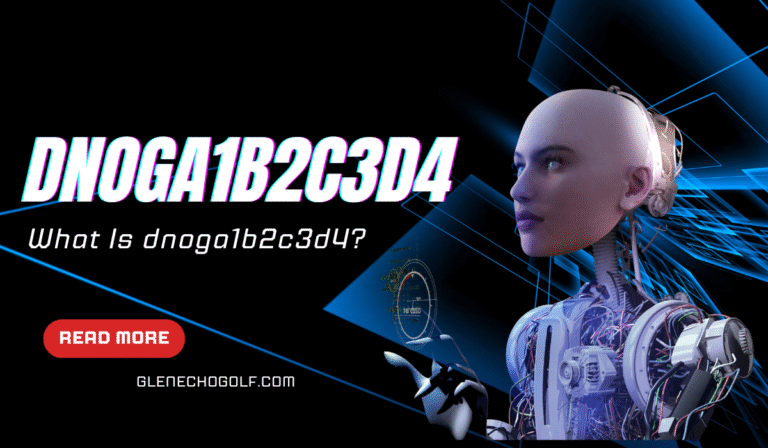In a digital era flooded with data, identifiers, and evolving technologies, cryptic terms like dnoga1b2c3d4 often catch attention for their uniqueness, mystery, or perceived importance. While it may seem like a random string at first glance, “dnoga1b2c3d4” can take on layered meaning depending on context—particularly in areas like data structuring, system tagging, digital forensics, or even creative branding.
In this article, we dive deep into the world of dnoga1b2c3d4, exploring what it could signify, how seemingly abstract identifiers are used across industries, and why such coded terms play a growing role in today’s information architecture.
What Is dnoga1b2c3d4?
At face value, dnoga1b2c3d4 is an alphanumeric identifier. It combines letters and numbers in a pattern that doesn’t spell out a known word or term. But that doesn’t mean it’s meaningless.
Identifiers like this are often used in:
- Database tagging
- Version tracking
- File hashing
- Unique user or product IDs
- Software keys or serial codes
- Blockchain addresses
These strings are not meant to be readable like a human name; rather, they’re designed for machines to recognize and process reliably.
How Random Identifiers Drive Organization in Digital Systems
As systems scale, especially in cloud computing or enterprise-level software, human-readable naming becomes inefficient. Instead, developers rely on machine-readable identifiers.
Take these examples:
- UUIDs (Universally Unique Identifiers): Used in databases to ensure that each entry is unique.
- Git commit hashes: Used to track changes in codebases.
- API tokens: Used to authenticate and secure communication between platforms.
In such environments, a string like dnoga1b2c3d4 could serve as:
- A reference point to a configuration
- A security token
- An element in an encoded system
This random appearance is exactly what makes it useful — there’s less chance of duplication or error.
Real-World Applications of Alphanumeric Strings

1. Digital Security
Security tokens or API keys often take on random string formats like dnoga1b2c3d4. This randomness:
- Enhances entropy, making brute-force attacks difficult
- Avoids predictable naming (e.g., “admin123”)
- Improves authentication protocols
2. Blockchain and Cryptography
In crypto, strings like this are integral:
- Wallet addresses
- Transaction hashes
- Smart contract signatures
In such contexts, dnoga1b2c3d4 could theoretically serve as a placeholder for an encrypted transaction ID.
3. Gaming and Content Platforms
From Xbox GamerTags to asset identifiers in games like Minecraft or Roblox, unique tags are used to:
- Track user behavior
- Reference in-game items
- Enable user-generated content
If dnoga1b2c3d4 were a tag in a gaming ecosystem, it could be tied to a custom skin, user map, or mod.
The Rise of Unique Digital Signatures
In a world where billions of users generate data daily, we need ways to track and tag content. Unique identifiers provide:
- Scalability (systems don’t break as they grow)
- Accountability (trace data to its origin)
- Efficiency (easier cross-system communication)
This trend is particularly evident in systems like:
- Social networks
- Content delivery networks (CDNs)
- eCommerce catalogs
- IoT networks
An identifier like dnoga1b2c3d4 may not mean something to the human eye, but to systems, it’s a signature — as real as a fingerprint.
The Importance of Naming Conventions
Good naming conventions matter. Here’s why:
- Consistency improves communication between developers.
- Readability (where possible) helps with debugging and auditing.
- Predictability allows integration between APIs or platforms.
While dnoga1b2c3d4 is not “readable,” it can be part of a systematic convention, such as:
cssCopyEdit[Prefix][RegionCode][UserID][Checksum]
dnoga 1b 2c3d 4
This would provide structure even if the string looks random.
How dnoga1b2c3d4 Could Fit in Tech, Security, and Branding
Let’s explore three hypothetical but plausible scenarios:

1. As a Security Key
It could be a hashed result of a user’s credentials used for:
- Authentication
- Encryption keys
- Two-factor identification (2FA)
2. As a Product Code
In eCommerce, custom product IDs like dnoga1b2c3d4 help manage large catalogs without conflict.
Could represent a limited-edition golf club model or accessory.
3. As a Marketing Identifier
Some companies intentionally use cryptic codes for exclusivity or mystique.
- Think of invite-only platforms like Clubhouse or OnePlus in its early days.
- A code like dnoga1b2c3d4 could be part of a referral system or VIP access.
Potential Use in AI and Blockchain Technologies
The merging of AI and decentralized systems creates the perfect environment for identifiers like this.
- AI models generate millions of temporary files, checkpoints, and weights. Tags like dnoga1b2c3d4 help organize them.
- In blockchain-based platforms, unique hashes represent ownership or activity.
Imagine a future where dnoga1b2c3d4 represents:
- An NFT minted for a specific golf course membership
- A digital certificate verifying the authenticity of a golf product
- A smart contract governing a tee time marketplace
Ethical and Legal Considerations
While identifiers seem harmless, they raise questions:
- Data Privacy: Are these IDs tied to personal data? Are they anonymized properly?
- Security Risks: Could weakly generated identifiers be guessed or reverse-engineered?
- Regulatory Compliance: In regions under GDPR or CCPA, even identifiers might be considered “personal data.”
If dnoga1b2c3d4 is tied to user activity, businesses must ensure it’s used ethically and stored securely.
Psychological Impact of Cryptic Identifiers
You might wonder: why do we care about how identifiers “look”?
Turns out, presentation matters:
- Perceived value: Limited codes or mysterious strings suggest exclusivity.
- Trust: Clean, well-structured codes feel more professional and secure.
- User experience: While back-end systems need unique IDs, users prefer human-friendly versions for interactions.
Companies often create dual systems:
- Machine-readable tags (e.g., dnoga1b2c3d4)
- Human-friendly aliases (e.g., “Glenecho Elite Putter”)
Future Implications
As the internet becomes more decentralized, encrypted, and automated, strings like dnoga1b2c3d4 will only grow in relevance.
In the future, such IDs could represent:
- AI-generated legal agreements
- Time-locked access to digital products
- Immutable records in decentralized golf tournaments or virtual club memberships
Final Thoughts
Though it may appear to be a random string, dnoga1b2c3d4 reflects a broader shift in digital language — one where uniqueness, randomness, and traceability matter more than readability.
Whether it’s powering secure APIs, indexing digital assets, or enhancing the privacy of user data, identifiers like these are quietly shaping the infrastructure of the modern web.
Next time you come across a string like dnoga1b2c3d4, remember: it’s more than just characters — it’s a key to a digital story waiting to unfold.


